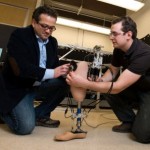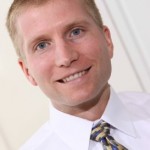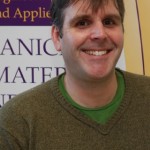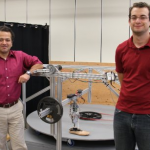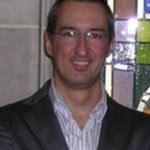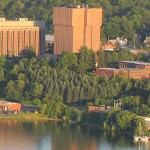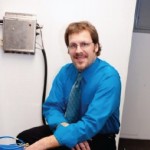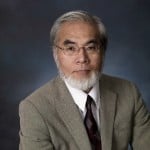 The ME-EM Graduate Seminar speaker on Thursday, March 19 at 4:00 in 103 EERC will be Dr. Masahiro Kawaji from City College of New York.
The ME-EM Graduate Seminar speaker on Thursday, March 19 at 4:00 in 103 EERC will be Dr. Masahiro Kawaji from City College of New York.
The title of his presentation will be ‘Characterization of Gas-Liquid Two-Phase Flows in Micro to Nuclear Reactors’.
Gas-liquid two-phase flow is encountered in many types of reactors ranging from microreactors with microchannels to bioreactors for fuel production and nuclear reactors for power production. Over the past 35 years, the author has worked on two-phase flow characterization using many different measurement techniques. In this talk, typical applications of both popular and unique measurement methods to flow channels varying in size from microchannels to 2-ft diameter piping in nuclear reactors will be discussed. The principle utilized in each measurement technique will be explained as well as the data obtained to highlight their advantages and limitations. Besides the popular high-speed imaging technique, the following measurement techniques will be discussed in this presentation.
For microchannels: Light and X-ray attenuation, high-speed imaging, confocal laser displacement sensor.
For nuclear reactors and bioreactors: Optical void probe, gamma densitometry, electric resistance tomography, borescope, Pitot tube, Hot Wire Anemometry, photochromic dye activation.
Masahiro Kawaji is Professor of Mechanical Engineering at the City College of New York (CCNY) and Associate Director of the Energy Institute at the City University of New York (CUNY). He moved from the University of Toronto in January, 2009, to conduct energy-related research involving multiphase flow and heat transfer and to develop a nuclear engineering program. He received M.S. and Ph.D. degrees in nuclear engineering from UC Berkeley and has over thirty years of experience in conducting multiphase flow/heat transfer research and teaching of chemical, mechanical and nuclear engineering courses. He has published over 350 archival papers in the fields of two-phase flow and phase change heat transfer, microfluidics, nuclear reactor thermal-hydraulics, heat pipes, microgravity fluid physics and transport phenomena, advanced instrumentation, free surface problems, compact heat exchangers, and thermal energy storage systems with phase change materials. He is a Fellow of ASME, the Canadian Academy of Engineering, and Chemical Institute of Canada. In 2013, he received the Donald Q. Kern Award for contributions to the field of heat transfer. He has served on the Editorial Advisory Boards of the International Journal of Multiphase Flow and Process Mechanical Engineering, and is currently serving on the Editorial Board of the Experimental Thermal and Fluid Science. He has also served on the organizing and scientific committees of numerous international conferences, including the ASME International Conference on Nanochannels, Microchannels & Minichannels (ICNMM) since its inception in 2003.
